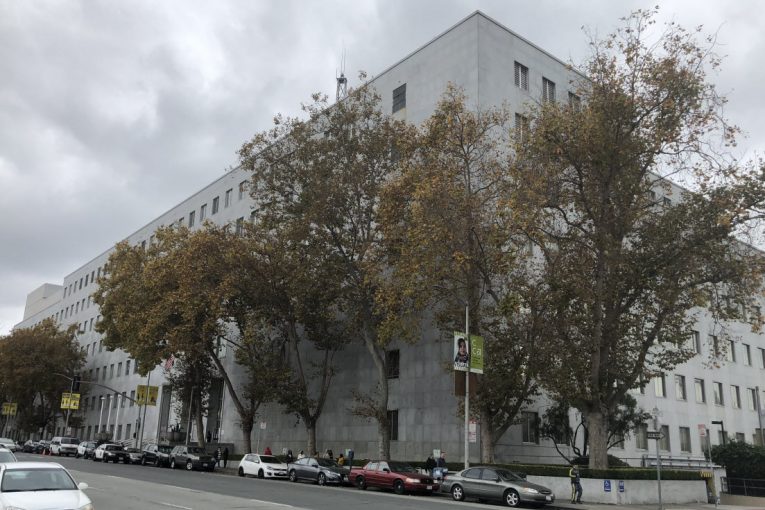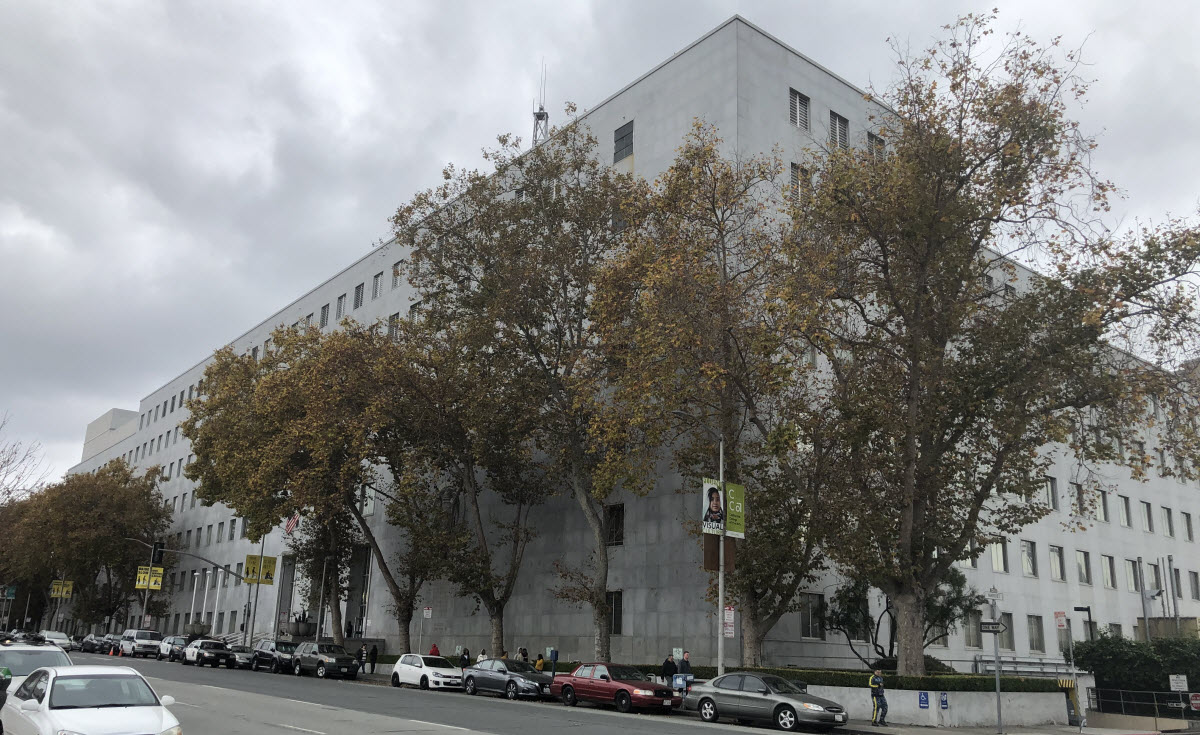

SAN FRANCISCO – The case of 42-year-old Gregory Fields gained national notoriety last week when Danielle Harris, the director of public policy at the San Francisco Public Defender’s Office, tweeted that Mr. Fields had was terminated from rehab for consuming a cookie.
According to a release from the public defender’s office last week, Mr. Fields was placed in the residential treatment program through Drug Court while on probation for a 2017 vandalism charge. Harbor Lights requires a 30-day detox followed by a 30-day blackout period where Mr. Fields, who lives with his mother in San Francisco, was not able to contact her or anyone else.
Against that backdrop – things got more bizarre as Mr. Fields returned to drug court before Judge Michael Begert, who has handled Mr. Fields’ matters since his initial February 24 placement.
The judge suddenly walks from the bench to where Mr. Fields, dressed in orange jail clothing, is standing, he gives the imposing figure a high five/hug. They embrace seemingly warmly and the judge returns.
Judge Begert begins talking directly to Mr. Fields, questioning about his attorneys sharing information with the media, asking if they had permission to do so, and reminding the defendant that this has been an 11-month process which he calls “a tug of war.”
Judge Bergert said, “I want you to understand… my goal is to walk you out of this process with your dignity.”
He said that “On February 24, you committed that you were going to do drug (rehab).”
He noted that he understood that he was upset about the Harbor Lights incident. The judge lamented that people in Mr. Field’s position could not afford the Betty Ford Clinic or the state of the art  services for drug rehabilitation.
services for drug rehabilitation.
“I wish we had better services for people who can’t be sent to Betty Ford,” the judge stated and urged people to lobby the legislature to improve the quality of drug rehabilitation services for the indigent.
As the judge continued to question the defendant, Deputy Public Defender Dana Drusinsky objected to the line of questioning by the judge as improper. He defended his actions, claiming this was collaborative court. However, she insisted that the judge stop attempting to converse with her client.
Judge Begert noted that he had been with Mr. Fields from the start, had a relationship with him, and that Mr. Fields had had six defenders during that time.
At this point, Ms. Drusinsky asserted that she had three asks: first that he be released from jail on time served, second that the sentence be modified so that he can be released today without a move to jail, and finally that probation be terminated.
She reminded the judge that Mr. Fields could have been released long ago had he simply plead to the charges rather than agreeing to get treatment in drug court.
The deputy DA told the rather stunned judge that the defense is correct on all points and said that his only objection was to the term of probation. The judge said he would prefer that Mr. Fields access outpatient services with housing rather than residential treatment at this point.
He was concerned that if Mr. Fields were free from probation, his access to treatment would be limited, and instead asked that his term of probation extend to January 21, 2021.
The judge granted those requests with the order that he remain on probation until January 2021.
The judge pointed out, “We call this a collaborative court,” and noted that some of the concerns raised by the defense were not raised on February 24.
For her part, Ms. Drusinsky objected to the judge’s characterization and noted that, due to the collaborative nature of the proceedings, the record was not nearly as full as it would be in a typical court setting.
Judge Begert noted, “I think a better effort could be made without undermining the collaborative nature of this court.”
Ms. Drusinsky responded that the purpose of the collaborative court and the drug court is to lower recidivism through treatment. She argued that to “punish them for any transgression (such as the cookie incident), does not achieve this result.”
Mr. Fields, she said, had wanted to get treatment. However, when Harbor Lights released him for eating a cookie, “they refused him residential treatment.” When that was objected, they gave him the opportunity to basically start over again. But that would have meant another 30-day detox followed by a 30-day blackout period in which Mr. Fields would have no contact with his family.
Ms. Drusinsky called this case “a systemic failure.”
—David M. Greenwald reporting

I appreciate the collaborative nature of the court and think we should be utilizing this model much more than we do. However, I cannot help but wonder about a system that is willing to spend the time, energy, salaries, overhead funded by our taxes for such a court for the sake of …..a purloined cookie.
I’m curious as to whether the cookie Mr. Fields consumed had been sent to him by his mother. If so, his defense should have been that no reasonable person can resist a Mrs. Fields cookie.
Or how about we deal with the original charge and give the guy a couple of hundred hours community service. It’s about money folks. The prison industry can’t operate if we don’t jail these poor ignorant souls for the most minor infractions.
The Salvation Army had some ulterior motives here, believe it.